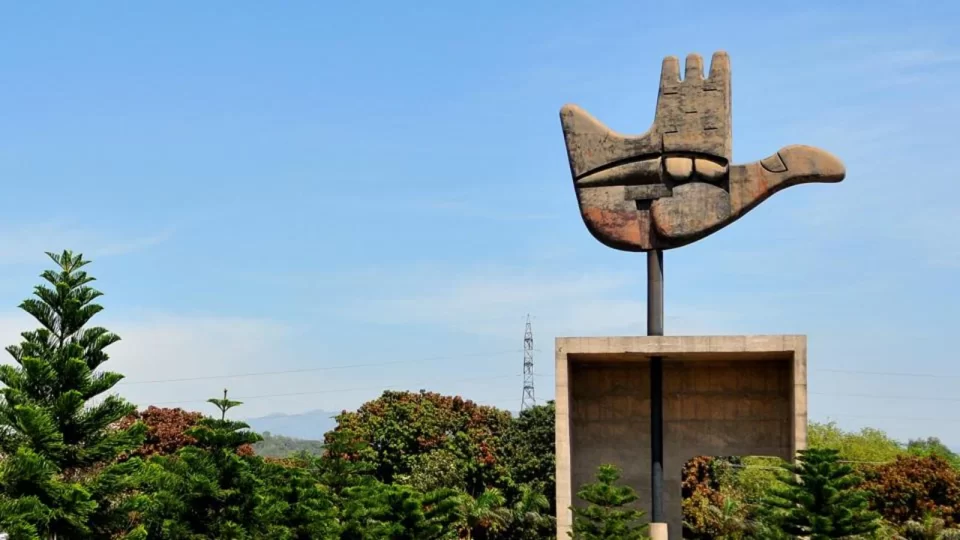Chandigarh’s Property Puzzle: An Explainer on the Leasehold to Freehold Debate
Chandigarh’s Property Puzzle: An Explainer on the Leasehold to Freehold Debate
CHANDIGARH – For countless property owners in Chandigarh, a single, complex question looms large over their most valuable asset: is their ownership absolute? The answer lies in the city’s unique property system and the long-standing, often contentious debate between “leasehold” and “freehold” ownership.
This issue, rooted in the very foundation of the city, affects thousands of residential and commercial property holders. But what does it actually mean, and why has it become such a critical point of discussion for the future of the City Beautiful? Nation News breaks it down.
The distinction between leasehold and freehold ownership is a critical issue for property owners across Chandigarh.
First, What Do ‘Leasehold’ and ‘Freehold’ Mean?
To understand the problem, we must first define the terms in the simplest way possible:
Leasehold Property: Think of it as a long-term rental from the government. When you buy a leasehold property, you are buying the right to occupy and use that property for a fixed period, typically 99 years. The land itself is still owned by the government (the Chandigarh Administration).
Freehold Property: This is complete and absolute ownership. When a property is freehold, you own both the structure and the land it stands on, outright and forever. You have the freedom to sell, mortgage, or transfer it without needing permission from the government.
Why Is Chandigarh a Leasehold City?
The leasehold system is part of Chandigarh’s original master plan. When the city was being developed in the 1950s, the government decided to allot land on a 99-year lease. The core ideas were to:
Maintain Control: Ensure the city’s planned character, designed by Le Corbusier, was not diluted by uncontrolled construction.
Generate Revenue: The administration could earn revenue through ground rent and lease renewals.
Prevent Speculation: It was thought that this would curb rapid, speculative buying and selling of land.
The Problem with the Leasehold System
While the initial idea was well-intentioned, decades later, property owners face significant challenges:
Limited Ownership: You are technically a tenant of the government. This creates a sense of insecurity, especially as the 99-year lease period gets closer to its end.
Transfer Hassles: Selling or transferring a leasehold property often requires complex paperwork and permissions from the Chandigarh Estate Office, leading to delays and bureaucratic hurdles.
Restrictions on Modifications: Making significant changes to the property can require permissions, limiting the owner’s freedom.
Financing Difficulties: Banks are sometimes more hesitant to grant large loans against leasehold properties compared to freehold ones.
The Conversion Demand: What’s the Current Status?
For years, residents have demanded that the administration allow them to convert their properties from leasehold to freehold, giving them full ownership rights.
This has had a complex, start-stop history. The Chandigarh Administration has periodically opened schemes allowing for the conversion of certain types of properties upon payment of a conversion fee. However, these schemes have often been halted or put under review by the Central Government, leading to immense confusion and frustration among property owners.
As of September 2025, the demand for a clear, permanent, and city-wide conversion policy remains a major political and administrative issue.
Who Is Affected?
The debate impacts two major groups differently:
Residential Property Owners: Homeowners across the city, including those with plots allotted by the Chandigarh Housing Board (CHB), are the most vocal proponents of conversion. For them, it means securing their family’s primary asset for future generations.
Commercial Property Owners: Businesses operating out of leasehold commercial and industrial properties also face uncertainty. Freehold status would give them greater financial flexibility and make it easier to expand or use their property as collateral.
What Does the Future Hold?
The debate continues with strong arguments on both sides.
Proponents Argue: Freehold conversion is a matter of basic property rights. It will boost the real estate market, simplify transactions, and give owners a true sense of security.
Critics Worry: Widespread conversion could lead to the loss of Chandigarh’s unique, planned character. It might also lead to a significant increase in property prices, making the city less affordable.

